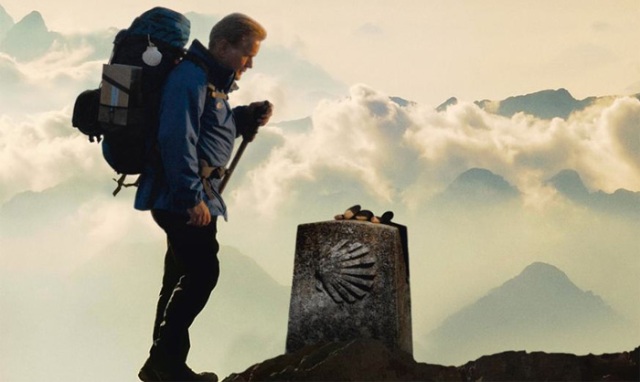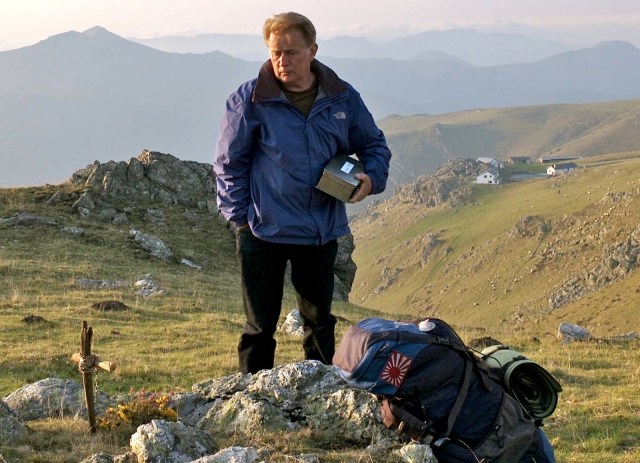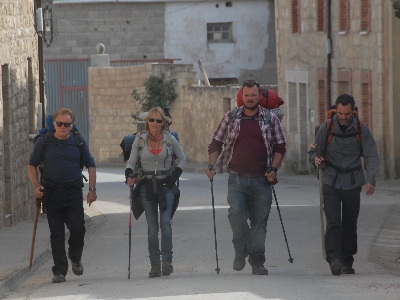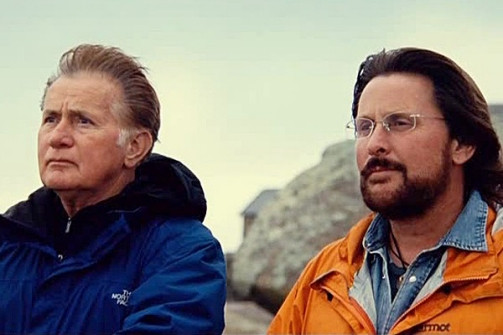While movies have only been around for a century or so, the idea of the road trip as a tale is almost as old as the written word. Its lineage can be traced from Homer’s ‘Odyssey’ through a thousand diverse texts that preach the journey is paramount, the destination a convenient point to conclude the narrative.
It is a concept that has been borrowed countless times by screenwriters, providing a framework where the central character leaves home in order to grow and develop; to be transformed in some manner that would not otherwise be possible.
In Emilio Estevez’s film “The Way” father Tom Avery (Martin Sheen) is an ophthalmologist living comfortably in California who is thrust into the real world far from his cosy existence when his son Daniel (Emilio again) dies while walking the Camino de Santiago. This, we learn, is an 800km trail that starts from St Jean-Pied-du-Port in France, goes across the Pyrenees and Spanish border to the Cathedral of Santiago de Compostela in Galicia, allegedly the resting place of St James.
Called from the golf course to come and identify his son’s body, Toms’ shock and grief is palpable. He cannot imagine why anyone would undertake such a journey. Through flashback we learn that it is his inability to understand his son that is the prime reason for their estrangement. As an act of contrition, Tom abandons his practice and, takes up the abandoned backpack and sets out to finish the journey his son had started, taking his ashes along to be spread along the trail.
Naturally he cannot accomplish change on his own; someone has to play devil’s advocate and hold the mirror up to him. Despite his prickly and self-absorbed nature, now compounded by a loss that he is loath to share, he soon has company. None of these pilgrims is overly spiritual, yet have no hesitation in walking a holy trail to ask for intervention from a saint. As Tom is told by one character, “Religion has nothing to do with this.”
Almost from the outset he is accompanied by Joost, a jovial Dutchman with a pharmacy in his pockets and obesity on his mind. Next to fall in is Sarah, an equally abrupt Canadian woman trying to overcome her own demons; and Jack, a stereotypical Irish writer struggling to come up with something original.
The movie travels at its own gentle pace, giving time for the characters to develop and bond. Despite the differences that threaten to split the group they find there is also much to bind them, not least their common fallibility.
Under normal circumstances these people would never interact, but here on the trail they have the opportunity to confess and play confessor, unloading themselves of the baggage that has held them back, not always comfortably. But the human dynamic between them; that is the glue that holds this movie together and maintains our interest.

It is easy to be seduced too by the landscape and the casual, relaxed lifestyle of those who choose to tread this historical path. The Xunta de Galecia (Galician Tourist Board), who arguably re-invented the pilgrimage in 1993 with an international marketing campaign, will surely reap the benefits of this movie.
But Estevez didn’t set out to make a travelogue, and he didn’t desire a modern day Canterbury Tales. He set out to make a film about family, and loss, and redemption, and the desire to do more with our time on this planet. And along the way we learn that life should be shared, and fulfilling.



